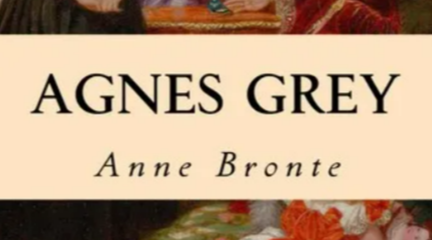Chapter VIII — The ‘Coming Out’
byChapter VIII – The ‘Coming Out’ begins with Rosalie Murray preparing for the defining moment of her young social life—her debut into high society. A grand ball is to be held in her honor, one that promises to draw noble guests from across the region. Rosalie sees it not only as a party, but as the gateway to admiration, status, and potential suitors. Her excitement is constant and theatrical, filling every conversation with vivid descriptions of gowns, dances, and imagined flirtations. She rehearses glances and curtsies as if preparing for a performance, one where her beauty and charm will win the spotlight. Agnes, witnessing all this, remains quietly observant. She sees how Rosalie ties her sense of worth to this single evening, expecting it to shape her future.
As Agnes reads a letter from her sister, Rosalie interrupts, dismissing the correspondence as dull. She mocks the simplicity of Agnes’s family news, contrasting it with her own glittering plans. For Rosalie, anything outside the social world seems trivial. She insists Agnes delay her holiday just to see her in her ball gown, claiming it would be a shame for such beauty to go unadmired. But Agnes politely refuses. Her heart is set on returning home for Christmas and being with her family, especially as her sister’s wedding approaches. The exchange reveals the gulf between their values. One finds joy in genuine connections, while the other seeks validation through display and admiration.
Rosalie cannot comprehend why anyone would choose family over society. Her worldview revolves around appearances, and she measures success by the number of glances she can gather. To her, Agnes’s desire to return home appears small-minded, even backward. Yet Agnes knows that love and warmth do not need grand halls or chandeliers. The quiet fulfillment found in her sister’s happiness outweighs any ballroom admiration. This gentle resistance to Rosalie’s teasing is not rebellious, but firm. Agnes stands by her choice without belittling Rosalie’s excitement. She simply understands that contentment comes in many forms, and not all of them are wrapped in silk and ribbon.
The chapter continues to explore this contrast through Rosalie’s relentless preparation. She dreams aloud of the compliments she will receive and the husbands she might attract. Her plans do not include affection or partnership, only admiration and conquest. She wishes to dazzle, not to connect. Meanwhile, Agnes sees her sister’s marriage—modest, heartfelt, and sincere—as a better model for life. It’s not grand, but it’s grounded in mutual respect and shared purpose. Through these differing visions, Brontë offers a sharp commentary on the Victorian emphasis on status over substance. The glamour of Rosalie’s world is seductive, but hollow. Agnes’s world, though less adorned, feels more honest and fulfilling.
Agnes’s refusal to attend the ball also speaks to her growing confidence. She has learned to recognize what truly matters to her and is no longer swayed by the pressures of wealth or appearances. Though her role as a governess places her in a lower social tier, her emotional clarity gives her a kind of strength. She chooses meaning over spectacle, and family over formality. Rosalie, on the other hand, continues to chase admiration, convinced it will bring happiness. But Agnes sees that admiration fades quickly, especially when it’s based on looks or fashion. What lasts is the quiet satisfaction of being known and loved by people who see past the surface.
As the chapter ends, the reader is left with two young women walking parallel paths. One walks toward applause, the other toward home. Both journeys carry meaning, but only one is likely to endure. Agnes’s decision marks a quiet victory for authenticity. She doesn’t need a ballroom to feel worthy—she finds value in sincerity, purpose, and belonging. Brontë uses this moment to deepen the novel’s critique of social climbing and to affirm the dignity in choosing one’s own priorities, even when they run against expectation. It’s a chapter about choices, and the courage to make the ones that align with the heart.

